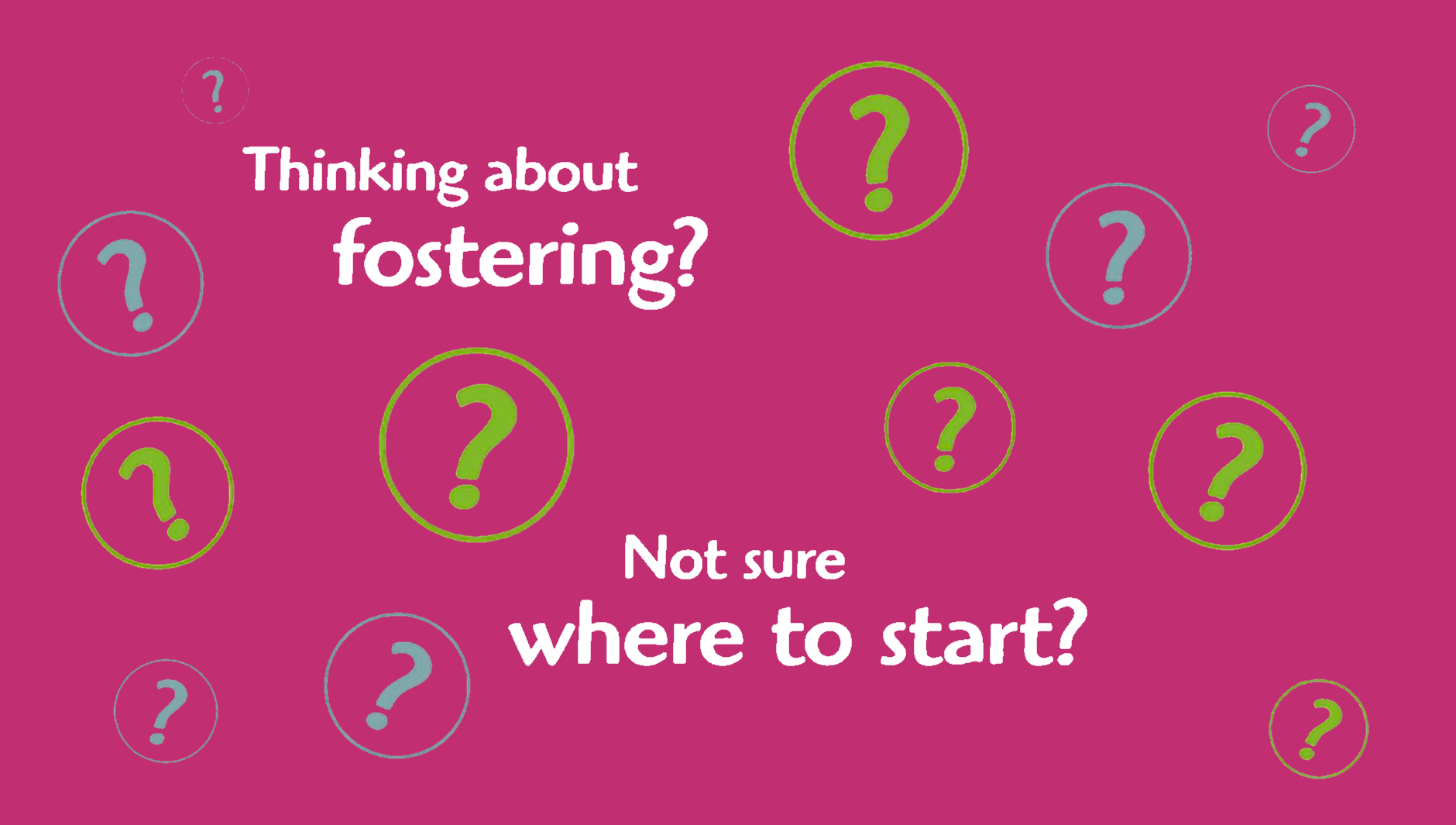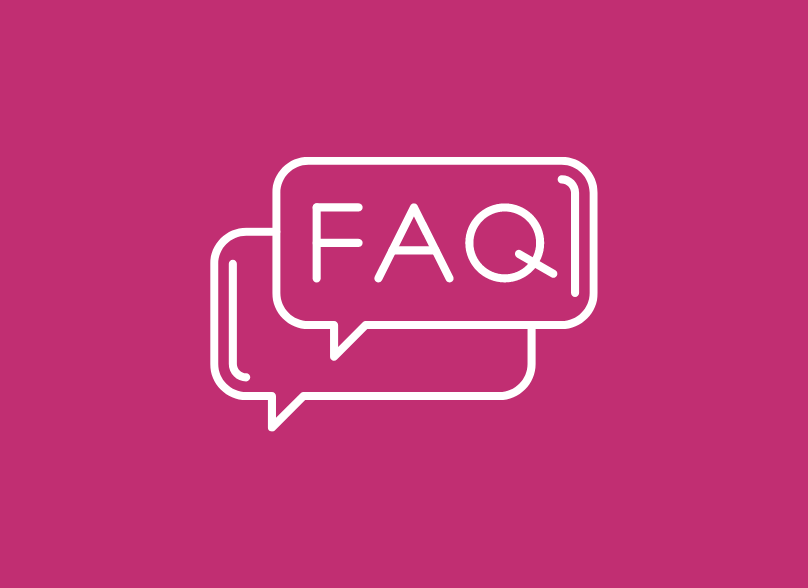How to become a foster carer
We are here to guide you through the process every step of the way.


Becoming a foster carer might seem like a big mountain to climb, but the process is much simpler than you think. In just a few simple steps, you can start your journey towards making a real difference in a child’s life.
And you won’t be doing it alone! At every stage, you’ll be guided by our expert team, who are there to answer any questions, offer support, and make sure you feel confident and prepared.
Along the way, you’ll gain new skills, receive top training, and experience the life-changing joy of opening your home to a child in need.
Not sure where to start? Keep reading or get in touch to find out more!
Can I foster a child?
Before applying, it’s important to know if you meet the basic requirements to become a foster carer. To become a carer, you need to:
-
Be at least 21 years old.
-
Be a UK resident.
-
Be in good physical and mental health to care for a young person.
-
Have a safe, clean, and comfortable home.
-
Have a spare bedroom.
-
Be resilient, empathetic, and ready to build meaningful connections.
-
Be comfortable working with therapists, social workers, teachers, and birth families.

How long does the fostering process take?
One of the first questions people ask us is, “How long does it take to become a foster carer?” On average, the process takes about six months, but for some, it can be as quick as 12 weeks. The more time and flexibility you can dedicate to the process, the sooner it’s likely to be completed.
After you’re approved, there’s no set timeline for your first placement. Matching foster children with the right families is a careful process, so you could welcome a child straight away, or it might take a little longer. While you wait, it’s a good idea to prepare your home and think about how to make a foster child feel welcome, especially if a placement comes at short notice.
Take a look at the different types of fostering that we offer to find the perfect fit for you!
How To Become A Foster Carer
Step 1. Speak With Us
The first step is to get in touch! We’ll have a chat to learn more about you, answer your questions, and explain what fostering involves. This is your chance to find out if fostering is right for you.
Fill out our contact form, request a free callback, or call us at 01706 558910. There’s no obligation to take things further, just friendly answers to your questions!
Step 2. Home Visit
Next, we’ll arrange a visit to your home. Don’t worry - it’s not about perfection! We’ll check that your home is safe and has enough space for a child, and we’ll talk more about what fostering looks like day-to-day.
Here’s what happens:
-
You’ll sit down with a fostering advisor to talk about your motivations, skills, and expectations as a foster carer.
-
During the visit, you’ll receive a formal application form and an information pack with everything you need to know.
-
Take your time filling out the form—there’s no rush! You can think through your answers and even discuss them with your family.
Step 3. Application Form
If you’re ready to move forward, you’ll fill out an application form. This gives us all the important details about you, your family, and your background so we can get the ball rolling.
Step 4. Assessment Process
As fostering is such an important role, we’ll carry out thorough checks, including a DBS (Disclosure and Barring Service) check, and speak with your references. This is to make sure everything is in place to support you and the child you’ll care for.
How long does the assessment process take?
The assessment process usually takes around four to six months. During this time, your assigned social worker will visit your home six to eight times to gather all the information needed for your fostering report (called a Form F). The timeline can vary depending on individual circumstances, but your social worker will guide you through everything.
What happens at fostering assessments?
The fostering assessment is a detailed evaluation to make sure you’re ready to give a child a loving and supportive home. Your social worker will cover:
-
Household involvement: Everyone in your home will be part of the process and share their input.
-
Personal background: Questions about your family life, relationships, and employment history.
-
Skills and understanding: Your ability to provide a stable home, understanding of identity and diversity, and your personal support network.
-
Statutory checks: DBS and identity checks, health and safety evaluations, and references from employers, friends, and ex-partners (if applicable).
You’ll also attend a two-day “Skills to Foster” training course to learn the basics of fostering. If you want to foster children with complex needs, you’ll receive specialised training covering everything from autism awareness to physical disabilities.
After the assessment and training, your report will go to a panel of experts, who will meet with you and your social worker to review and make any changes if needed.
Step 5. Fostering Training
Fostering isn’t just about opening up your home. We make sure that all our carers feel prepared with the knowledge, skills, and confidence to support the children in their care. That’s where training comes in!
Our sessions are designed to help you handle all of the ups and downs of fostering. You’ll also have the chance to learn alongside other foster carers and share experiences and support.
We prioritise the training and development of our foster carers to ensure they provide the best care possible, so ongoing sessions are offered to ensure you’re always learning and growing as a carer.
How long is fostering training?
The initial training is our “Skills to Foster” course, a two-day introduction that covers all the basics. Then, you’ll complete the mandatory “Training, Support and Development Standards” course within the first 12 months, supported by your supervising social worker.
If you’re caring for children with additional needs, we’ll provide extra training to help you feel fully prepared. We offer regular sessions to keep your skills sharp and up to date.
What does fostering involve?
We offer a wide range of courses and keep our training fresh and relevant, so you’ll always have the tools you need.
Here’s a look at the topics we cover to help you feel confident in your role:
- Child protection
- Working with children who have been abused
- Safe Caring
- Managing difficult behaviour
- Managing and promoting contact
- Identity and self-esteem
- Valuing diversity and promoting equality
- Recording
- First aid
- Health and Safety
- Health care of fostered children and young people
- Education of fostered children and young people
- Empowering children and young people
- Preparing children and young people for adulthood
Step 6. Panel Interview
After your assessment and training, your report will go to a panel of experts, who will meet with you and your social worker to review and make any changes if needed. This is the last step before you’re ready to start your fostering journey!
What happens at a foster panel interview?
Your fostering report will be reviewed by a panel of independent members with your social worker. During the interview, they’ll ask questions about your report for clarification or additional details. This is your chance to fill in any blanks, share more about yourself, and highlight why you’d make an excellent foster carer. After the interview, the panel will make a recommendation to the fostering service.
Who is on a foster panel?
The panel is made up of professionals with experience in fostering and childcare, such as social workers, educators, and independent members. Many will have experience from working directly with foster families and children themselves. Together, they carefully consider whether you meet the requirements to become a foster carer.
Don’t worry - the panel is there to help you, not to trip you up. They want to see you succeed as a foster carer!
Step 7. After You're Approved
Once you’re approved, you’re officially ready to start your fostering journey. But what happens next?
How long until you start fostering?
The timing of your first placement depends on finding the right match between your family and a child in need. Some foster carers welcome a child straight away, while others might wait a little longer. The focus is always on creating a placement that works best for both you and the child.
What support will Olive Branch provide?
Your fostering journey doesn’t stop at approval, and neither does our support. Here’s some of what you can expect:
- A dedicated social worker who will check in monthly and be there whenever you need advice or guidance.
- A 24/7 helpline for any questions, help, or emergencies.
- Ongoing training to make sure that you’re always prepared for new challenges.
- A community of foster carers who share their experiences and provide encouragement along the way.
- A generous fostering allowance to cover your expenses and recognise the incredible work that you do.
Think of us as your cheerleaders! We’re here to encourage you, back you up, and guide you so that you feel totally ready to make a life-changing difference in a child’s world.
On this page

Frequently Asked Questions
We understand that fostering can be a demanding full-time commitment. That’s why we make sure that we look after our carers to recognise the incredible work that you do and enable you to provide the best care possible.
We offer a competitive rate that covers essentials like food, clothing, and household bills to meet the child’s needs, as well as additional expenses for any special requirements they might have. If you’d like to learn more about how your allowances and benefits are calculated, we’re always here to talk it through!
When your foster child turns 18, they will officially leave foster care. The local council remains responsible for providing support, such as a personal adviser and a pathway plan to help them navigate adulthood. Often, foster children build such a strong bond with their carers that they remain lifelong friends, so although they are no longer your responsibility, they remain a cherished addition to your family well beyond their time in care.
Alongside your financial allowance, you’ll have access to round-the-clock support from our team to help you feel confident and prepared for any situation.
You’ll get a personal support worker who will check in with you and your household on a regular monthly basis. You will also get to meet a whole new support network of other local foster carers who will share their experiences and give encouragement along the way.
We offer a 14-day respite allowance to give you time to rest and recharge. During this time, we’ll arrange for another approved carer to look after your foster child during your break.
We also offer a range of regularly updated extra courses, including child protection, safe caring, managing behaviour, and first aid to develop your skills.
Want to know more? Check out the resources below
Still have questions about fostering?
Choose a date and time on the calendar below, and one of our fostering advisors will give you a call to discuss any questions you might have.


